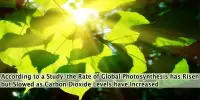According to a group of microbiologists and Earth scientists from numerous German institutions, methane could have formed in water on Earth before life ever existed. The team experimented with early Earth simulations in their study, which was published in the journal Nature Communications, in order to demonstrate how methane would have evolved.
The same researchers identified a method for methane to develop in living things without the need for enzymes last year. They then began to ponder whether the same process might take place without a living being.
They set up numerous vials of water and what they refer to as “starter chemicals,” which are believed to have been present in the water on Earth before life began, to find out. They heated the vials at temperatures ranging from 37°C to 97°C and let the vials incubate.
The researchers found different concentrations of methane in the vapor that was formed in the vials; typically, the greater the temperature, the more methane.
The researchers suggest their findings could explain what has been described as the “faint young sun” paradox. Prior research has suggested that life began on Earth approximately 3.7 billion years ago.
Additionally, previous studies have indicated that the early Earth was much warmer than it should have been given that the sun was only producing roughly three-fourths as much heat as it does now.
Theories developed to solve the paradox have revolved around methane. Being a greenhouse gas, it may have kept the earth warm by trapping heat in the atmosphere. But up until this point, serpentinization a process that takes place inside hydrothermal vents was assumed to be the sole way for methane to be produced at that time.
Unfortunately, the majority of model-based predictions of how much energy these vents might release indicate that they could not have generated nearly enough energy to keep the Earth as warm as it was. It now appears that as the water warmed from the sun, methane was also being directly created in the water.
The research will probably have an impact on efforts to find life on other plants where probes have been created to seek for methane as evidence of living things.
















